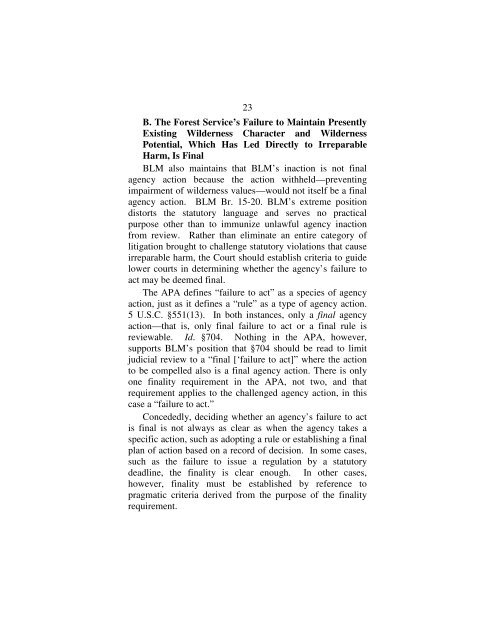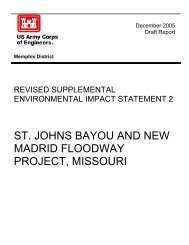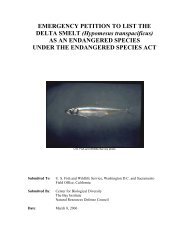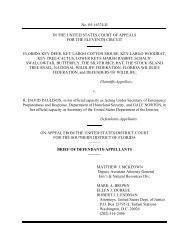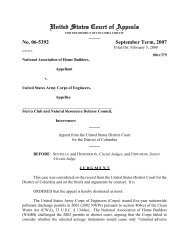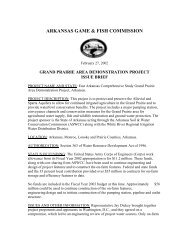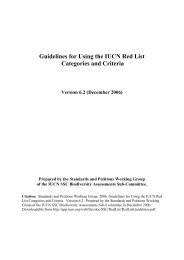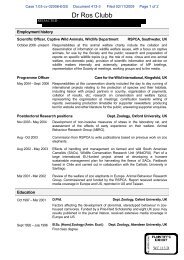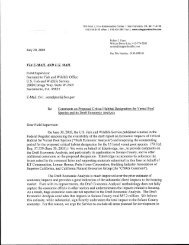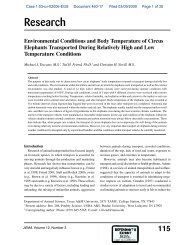Brief Amicus Curiae Of Montana Wilderness Association In Support ...
Brief Amicus Curiae Of Montana Wilderness Association In Support ...
Brief Amicus Curiae Of Montana Wilderness Association In Support ...
Create successful ePaper yourself
Turn your PDF publications into a flip-book with our unique Google optimized e-Paper software.
23<br />
B. The Forest Service’s Failure to Maintain Presently<br />
Existing <strong>Wilderness</strong> Character and <strong>Wilderness</strong><br />
Potential, Which Has Led Directly to Irreparable<br />
Harm, Is Final<br />
BLM also maintains that BLM’s inaction is not final<br />
agency action because the action withheld—preventing<br />
impairment of wilderness values—would not itself be a final<br />
agency action. BLM Br. 15-20. BLM’s extreme position<br />
distorts the statutory language and serves no practical<br />
purpose other than to immunize unlawful agency inaction<br />
from review. Rather than eliminate an entire category of<br />
litigation brought to challenge statutory violations that cause<br />
irreparable harm, the Court should establish criteria to guide<br />
lower courts in determining whether the agency’s failure to<br />
act may be deemed final.<br />
The APA defines “failure to act” as a species of agency<br />
action, just as it defines a “rule” as a type of agency action.<br />
5 U.S.C. §551(13). <strong>In</strong> both instances, only a final agency<br />
action—that is, only final failure to act or a final rule is<br />
reviewable. Id. §704. Nothing in the APA, however,<br />
supports BLM’s position that §704 should be read to limit<br />
judicial review to a “final [‘failure to act]” where the action<br />
to be compelled also is a final agency action. There is only<br />
one finality requirement in the APA, not two, and that<br />
requirement applies to the challenged agency action, in this<br />
case a “failure to act.”<br />
Concededly, deciding whether an agency’s failure to act<br />
is final is not always as clear as when the agency takes a<br />
specific action, such as adopting a rule or establishing a final<br />
plan of action based on a record of decision. <strong>In</strong> some cases,<br />
such as the failure to issue a regulation by a statutory<br />
deadline, the finality is clear enough. <strong>In</strong> other cases,<br />
however, finality must be established by reference to<br />
pragmatic criteria derived from the purpose of the finality<br />
requirement.


